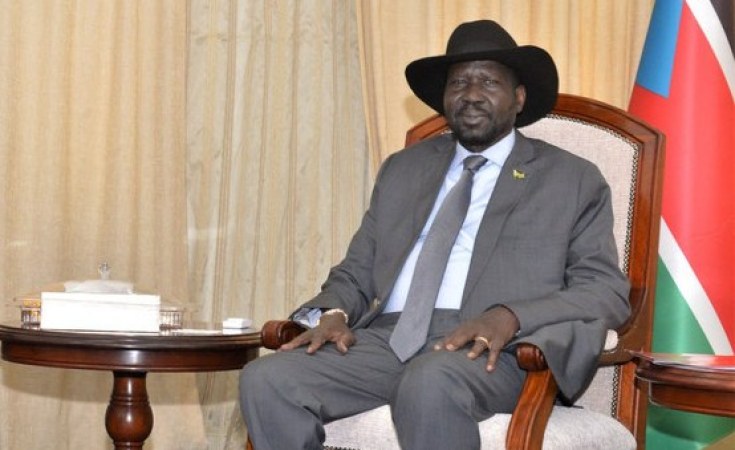South Sudan said Friday that long-awaited elections would be postponed for a further two years, once again extending a transitional period agreed in a peace deal.
Citizens have waited to elect their leaders since the country achieved its hard-won independence from Sudan in 2011, with the world's newest nation still dogged by violence, poverty and political infighting.
While a peace agreement six years ago ended a 2013-2018 civil war between President Salva Kiir and his bitter rival, Vice President Riek Machar, feuding between the two has repeatedly delayed a transition that was supposed to pave the way to future elections.
The presidency has "announced an extension of the country's transitional period by two years as well as postponing elections, which were initially scheduled for December 2024 to December 22nd, 2026", Kiir's office said in a Facebook post late Friday.
In the statement, Cabinet Affairs Minister Martin Elia Lomuro said the extension was "in response to the recommendations from both electoral institutions and the security sector".
"We didn't complete all the tasks which are critical for the conduct of elections in December 2024," Lomouro told reporters Friday evening.
Exasperation
Key provisions of the transitional agreement remain unfulfilled - including the creation of a national constitution and the unification of Kiir and Machar's rival forces - leaving the international community increasingly exasperated.
Earlier this year, UN Secretary-General Antonio Guterres urged parties to take "urgent steps" to allow the election to take place, while the UN Mission in South Sudan (UNMISS) warned of a lack of necessary "technical, legal and operational expertise" for voting to proceed in December.
A dire lack of funding - despite the land-locked nation's rich oil reserves - has further hobbled efforts, with bodies like the National Election Commission still not fully operational.
UN Security Council extends South Sudan arms embargo
And while the commission announced in April that voter registration would begin in June, by early July there was no indication of this happening.
Edmund Yakani, head of Community Empowerment for Progress Organisation (CEPO), told French news agency AFP the decision to delay the election was a "total disappointment".
Yakani said South Sudan's leadership had had more than enough time to prepare for the event.
"These extensions have been used as a strategy for clinging to power," he said, with the government announcing a previous two-year extension in August 2022.
In June, a "troika" of Britain, Norway and the United States issued a statement urging political parties to work together.
"History will judge harshly those leaders who failed to act to make such elections possible or who acted to impede them," it said.
Ethnic violence
South Sudan has spent almost half of its life as a nation at war and continues to be roiled by outbreaks of politically motivated ethnic violence.
Around 400,000 people died and millions were displaced in the civil war before Kiir and Machar signed a peace deal in 2018 to form the unity government.
Since then, the country has battled flooding, hunger, violence and political bickering as the promises of the peace agreement have failed to materialise.
South Sudan buckles from stream of refugees fleeing Sudanese war
Earlier this month the UN's humanitarian agency warned more than 700,000 people had been impacted by flooding, with aid failing to meet many in need.
Despite plentiful oil resources, rampant corruption has left the country largely impoverished, with the ruling elite accused of plundering public coffers.
Petroleum exports account for about 90 percent of national income, but the government has been deprived of this vital revenue since a pipeline shipping oil from South Sudan was damaged in war-torn Sudan in February.
(with AFP)


